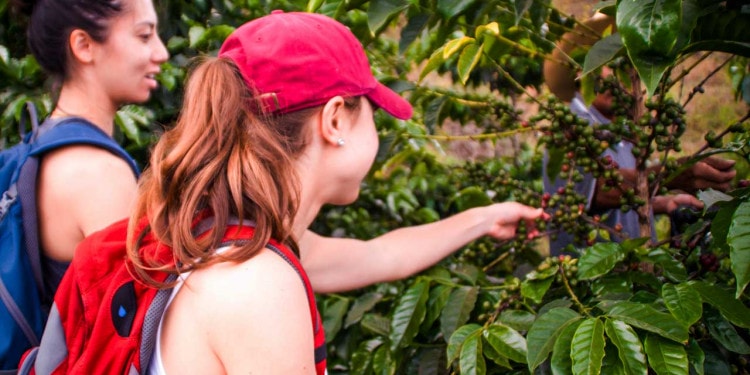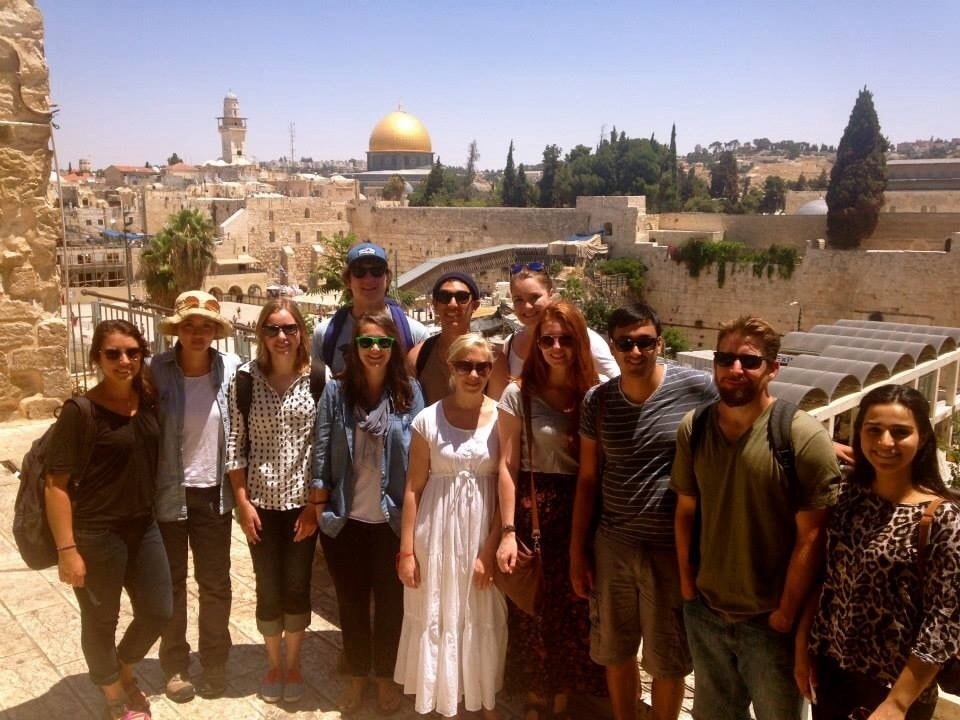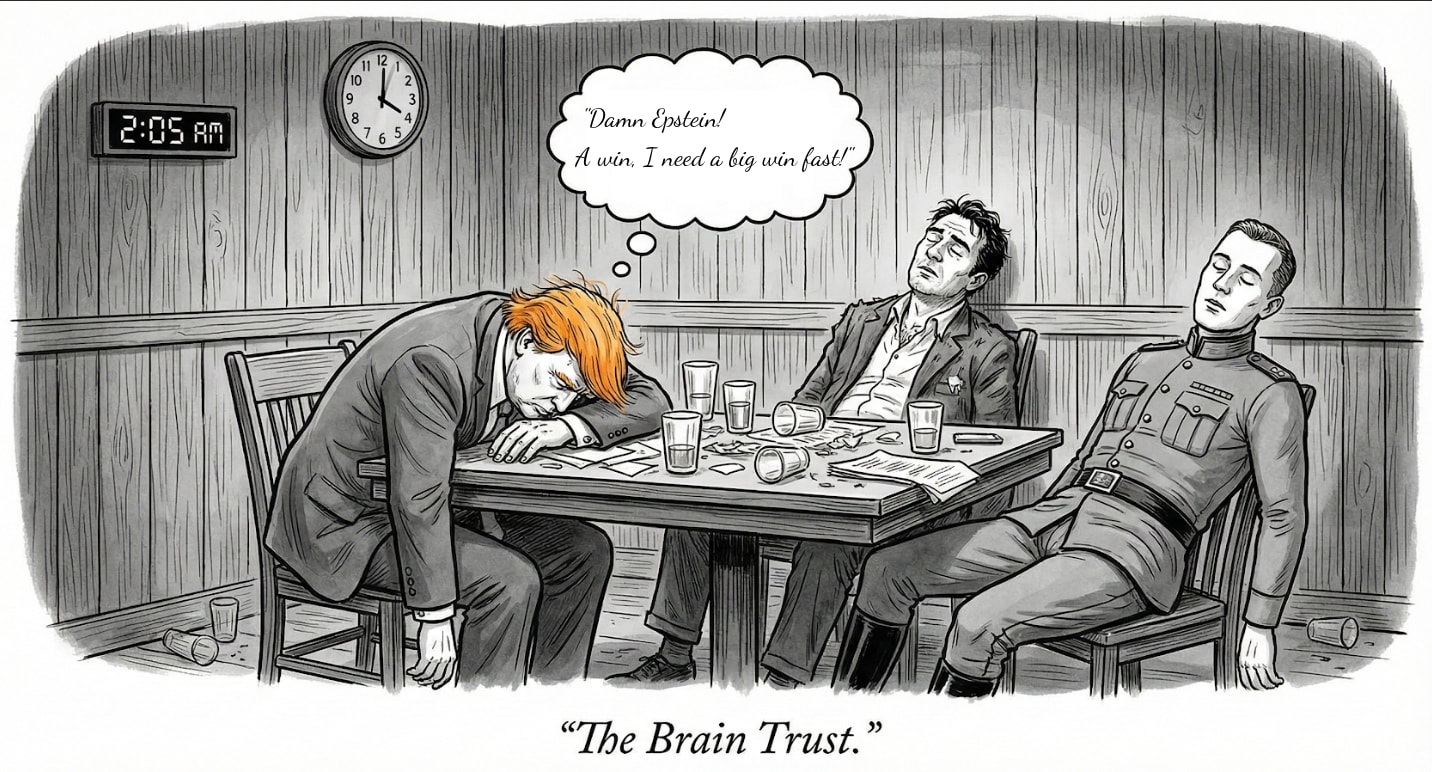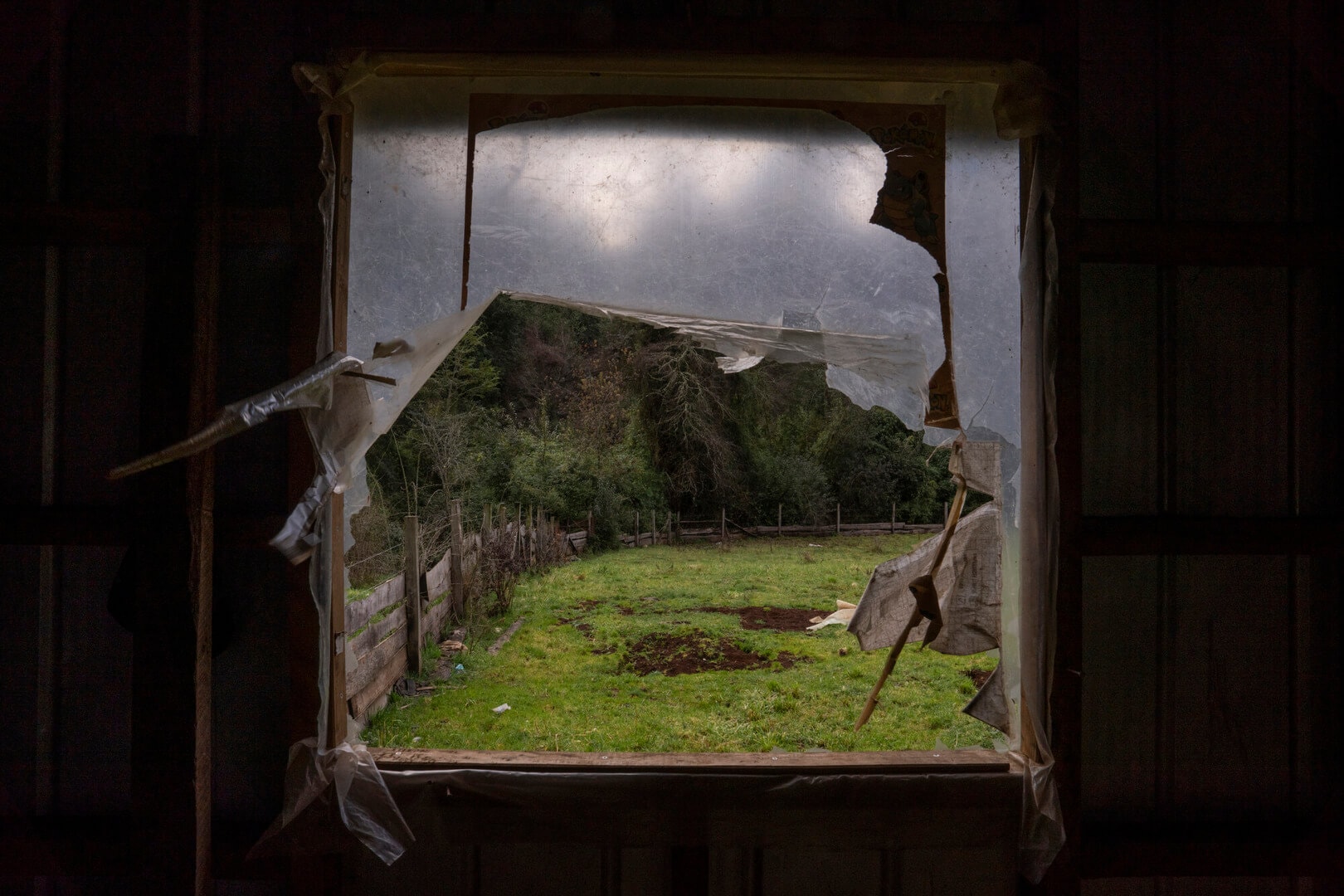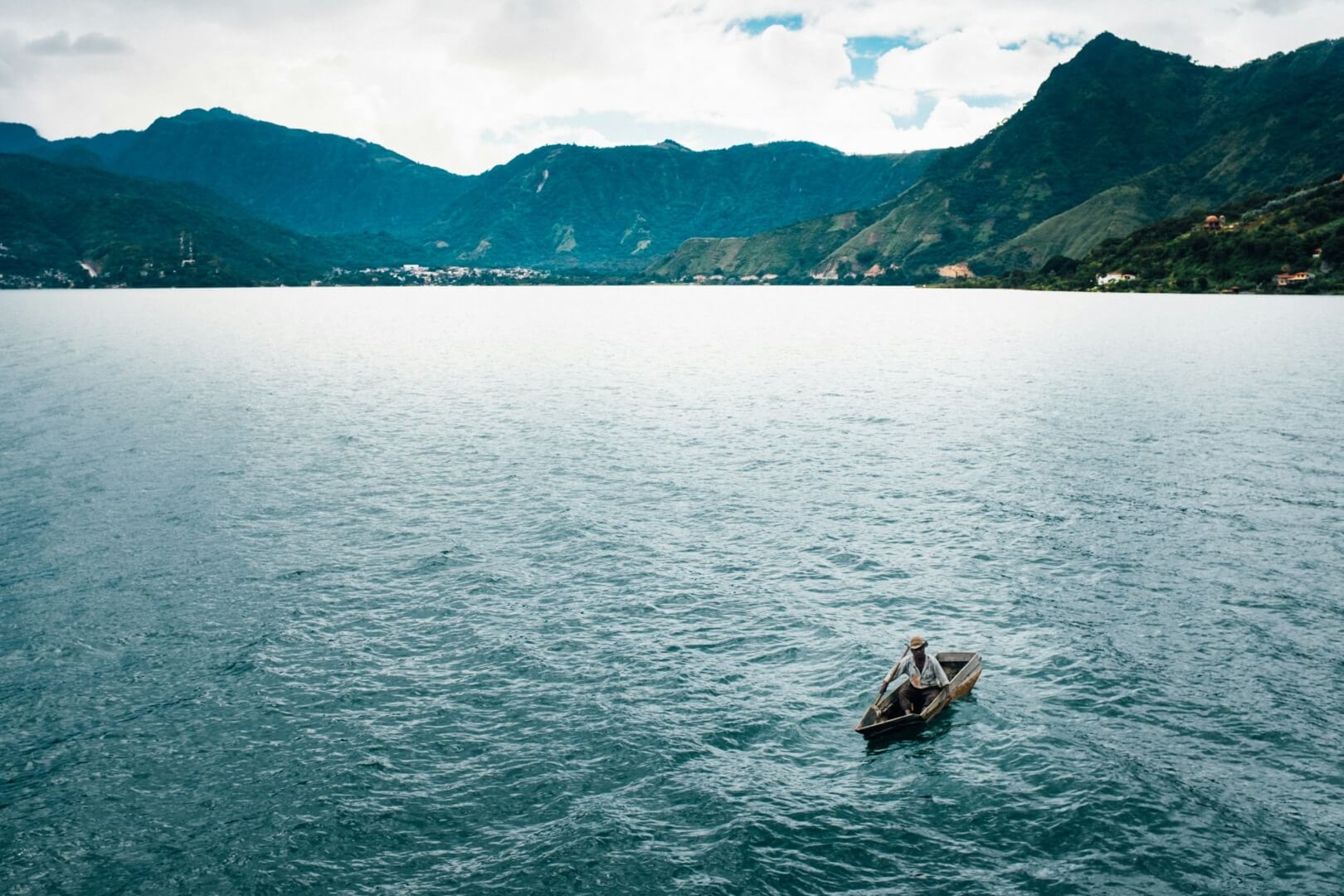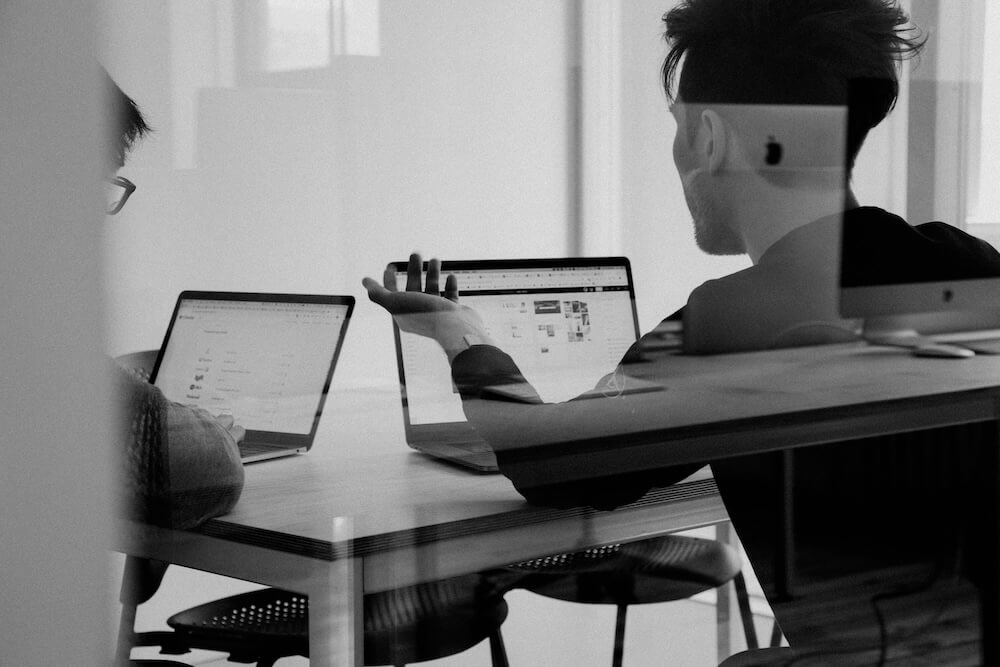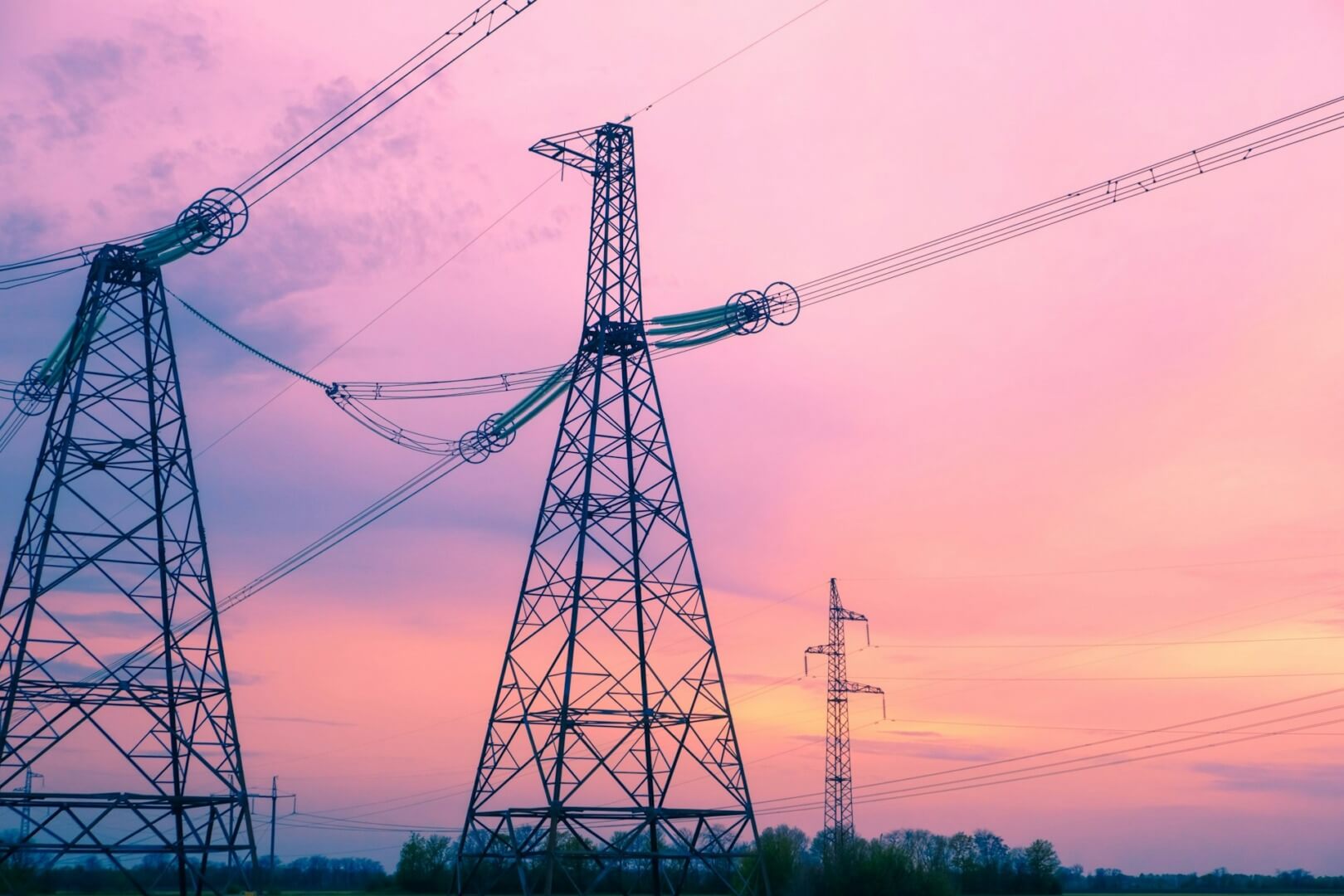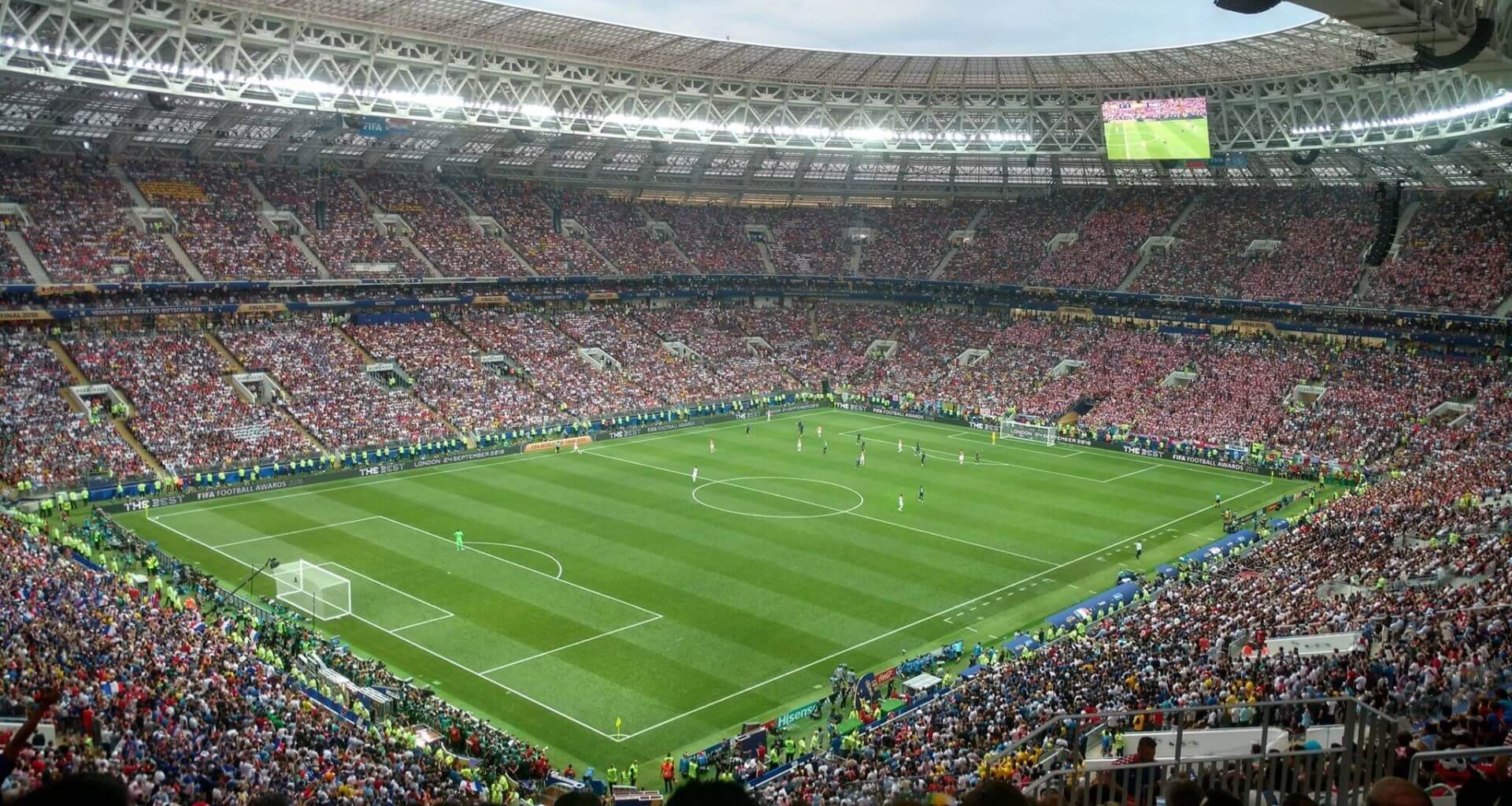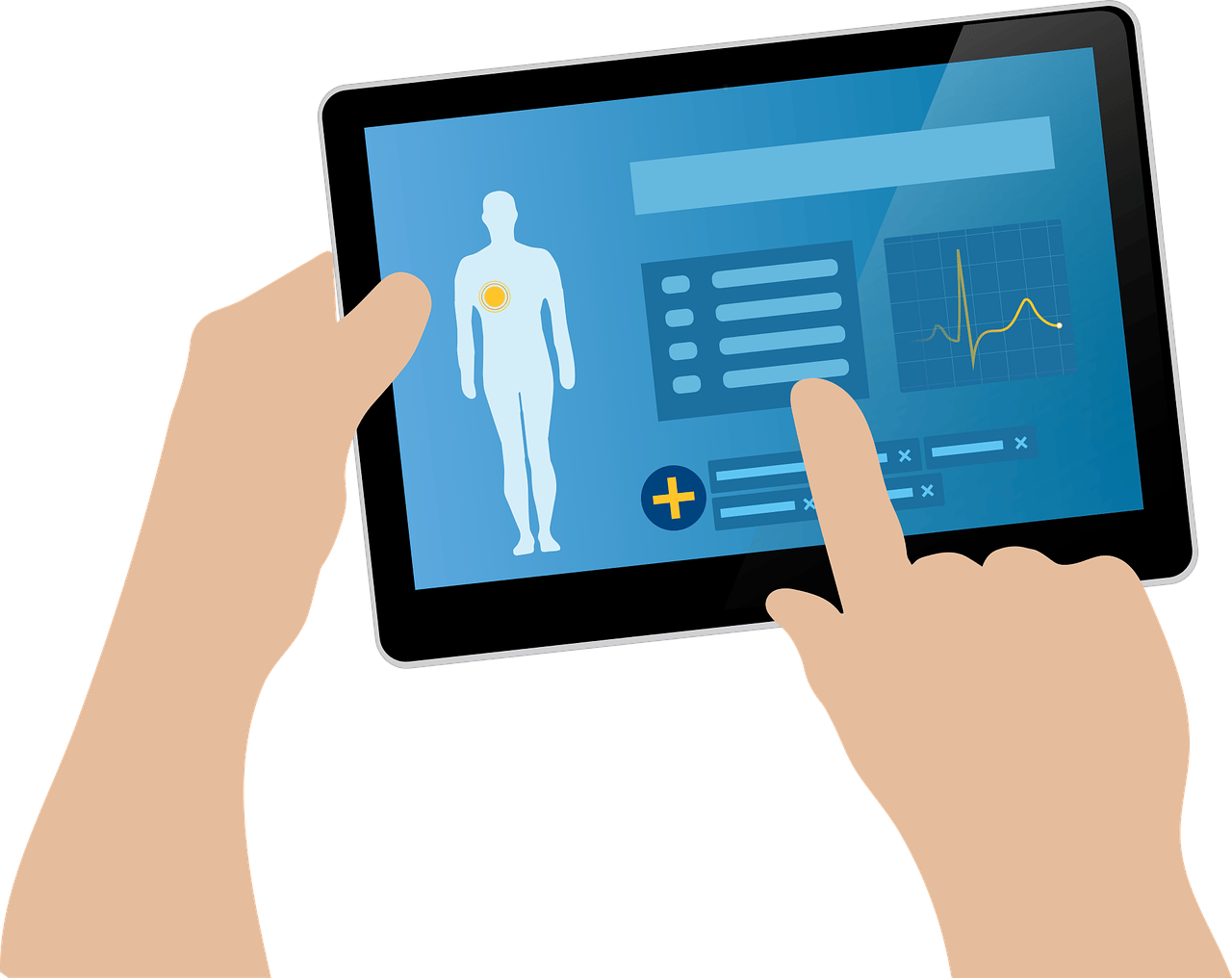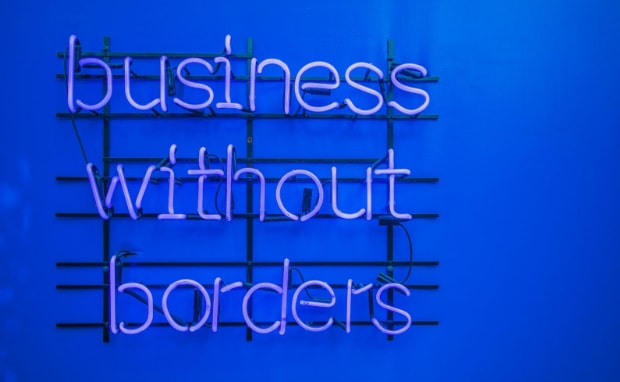OPERATION GROUNDSWELL REVEALS THE BACKPACKTIVIST IN YOU
2017 is the year of sustainable tourism says the UN. Impakter is highlighting organizations supporting the global effort towards promoting sustainability in tourism and so we have had the pleasure to discuss backpacktivism with Justine Yu and Eyal Rosenblum from Operation Groundswell.
Justine joined Operation Groundswell in 2012 as the Communications & Marketing Director, after working as a communications strategist for multiple non-profits across the world. I asked her to describe the NGO in 3 words: Solidarity, Challenging and Fun.
Eyal started working as a program leader with the Middle East program, he then moved on to Marketing Director to finally take on the role of Executive Director since 2012. His three words to portray Operation Groundswell? Ethical, Nuanced and Reflective.
Editor’s Note: Highlights from this interview are below. This interview has been edited and condensed for clarity.
How did Operation Groundswell start?
J.Y.: Operation Groundswell was started by David Berkal and Jonah Brotman back in 2006, both very young at the time – David was only 19 and Jonah 22 years old – can you tell they are pretty exceptional? They wanted to travel the world but they wanted to do so in a meaningful way: they didn’t want to just go to Southeast Asia and have a big party. They wanted to do some good while they were overseas.
When they were doing their research on different volunteer travel organizations and businesses to see what they could get involved in, they ran into two key issues: (1) Financial accessibility (2) Lack of consistency between local needs and help provided by organizations
That’s why they created the non-profit organization Operation Groundswell:
- They wanted to keep the costs as low as possible, to make it affordable. Indeed, they were still students and such experiences were still too expensive. Today, we also provide financial grants to people who might not otherwise be able to go on these programs.
- They found a lot of ethical issues around the space within organizations they researched. A lot of them struggled in consultation with local communities resulting in community needs not being met.
With Operation Groundswell, we wanted to make sure we were in sync with the local communities and that we had constant dialogue with our partners. That’s our key philosophy and why Jonas and David set out to start Operation Groundswell.
It is ‘en vogue’ today to take a break from studying to travel abroad, work with an NGO with the dream to change the world. Often, young people that set out to live these experiences come home with a frustration: the lack of impact of their so-called gesture, and for some with that bitter feeling of tourism voyeurism.
How is Operation Groundswell offering something different to its participants with backpacktivism?
J.Y.: As an experience, you’re probably getting more than you are able to give. There’s definitely a cultural exchange (in opposition to voyeurism) and a lot of skill-sharing between the organizations we work with. I would agree that the same feeling of frustration happens to a lot of our participants, where they come home and they feel that they’ve gained a world of experience. There is that disconnect between what they get and what they were able to give back. What is different about us is that we recognize that and a lot of the work continues when you get home.
A 6-7 week long program, is not merely long enough to be a humanitarian mission. Our focus is the educational experience and cultural exchange.
What really matters is how you choose to live your life when you return back home.
Our organization is not only providing these trips or programs; a lot happens afterwards. We have a really strong alumni community that continues to stay engaged after our program and they are doing a lot of action within their own local community. We work on facilitating that, so that our alumni are able to connect with one another to continue their activism back home essentially.
Who comes to you?
J.Y.: We get a really wide range of people. Most between the ages 18-24 years old, students typically, or recent graduates. Or young professionals 25-35 years old. They are people that want to travel and do so in a meaningful way. A lot of them are studying international development or global health and are looking for some sort of concrete experience. We do have people that are attracted to the sort of adventure part of our programs, the backpacking feel to it.
Related article: “GET PAID TO TRAVEL AND PHOTOGRAPH? – MEET LAUREN BATH”
How do you select participants?
J.Y.: We are pretty open to anybody but have an application process. People should be open and willing to learn – that’s the main criteria. On most of our programs, we go backpacking, they are a bit physical so we have an interview process that helps manage expectations and lets people know that this isn’t a vacation nor a luxury program. There are cold bucket showers and sometimes no electricity in the community that you’re living in. A lot of our programs touch on really difficult and heavy social justice issues. It is mentally, physically and emotionally difficult. It pushes you outside of your comfort zone so we are looking for people who are open to that and excited for that.
How do you choose who you partner with? How do you vet your partners’ ethical practices?
J.Y.: It happens really organically, mostly through our personal connections. We first started in West Africa in Ghana, and we found our key partner there. Jonah was doing an internship in a radio station in Accra and by word of mouth had heard of another NGO and it sort of developed there.
E.R.: Our process is pretty straightforward. We’ll start with something small, like meeting them. From that process we start a relationship, and if it seems solid then we can build that level of trust that we need to start thinking about projects. In order to make that switch, there’s an MOU (Memorandum of Understanding) that has to be created between both our organizations stating basically “here’s what we agree to do for each other as partners.” The regional director or program director will then ask the partner for a set proposal and that gets vetted by a regional committee, people who know the region well, to see if the project is usable, feasible, worthwhile. If they think it is and we have the funds to be able to support it we move forward with that project.
We want a partner that’s going to be able to call us out when we make a mistake.
The ability to have that honest back and forth and trust is so important to us. We are feedback oriented, we make mistakes all the time and as an organization, we learn from putting our ego to the side and saying, ‘cool, we messed up, how we do it better next time?’ We need partners who are able to give us that feedback.
The main criteria for partnering with us are (1) having a personal reference within Operation Groundswell, and aligned visions (2) the ability to communicate effectively and timely (3) working in solidarity (4) fiscal responsibility (being able to open up their books transparently).
Today we have between 40-50 year-to-year solid partners. Another 60 that are in the earlier phase of relationships. We spend more time on the ground trying to learn about those organizations than actually developing other projects.
The volunteering is a learning tool for us to bridge relationships.
What are your personal favorites, which programs would you recommend?
J.Y.: It’s like asking me to choose my favorite child . . . I guess I’ll start with the one I have been on.
Our Guatemala: Fair trade program is one of my top favorites because the country is beautiful and phenomenal and like nowhere I’ve never been before.
The focus of this program is on the coffee indu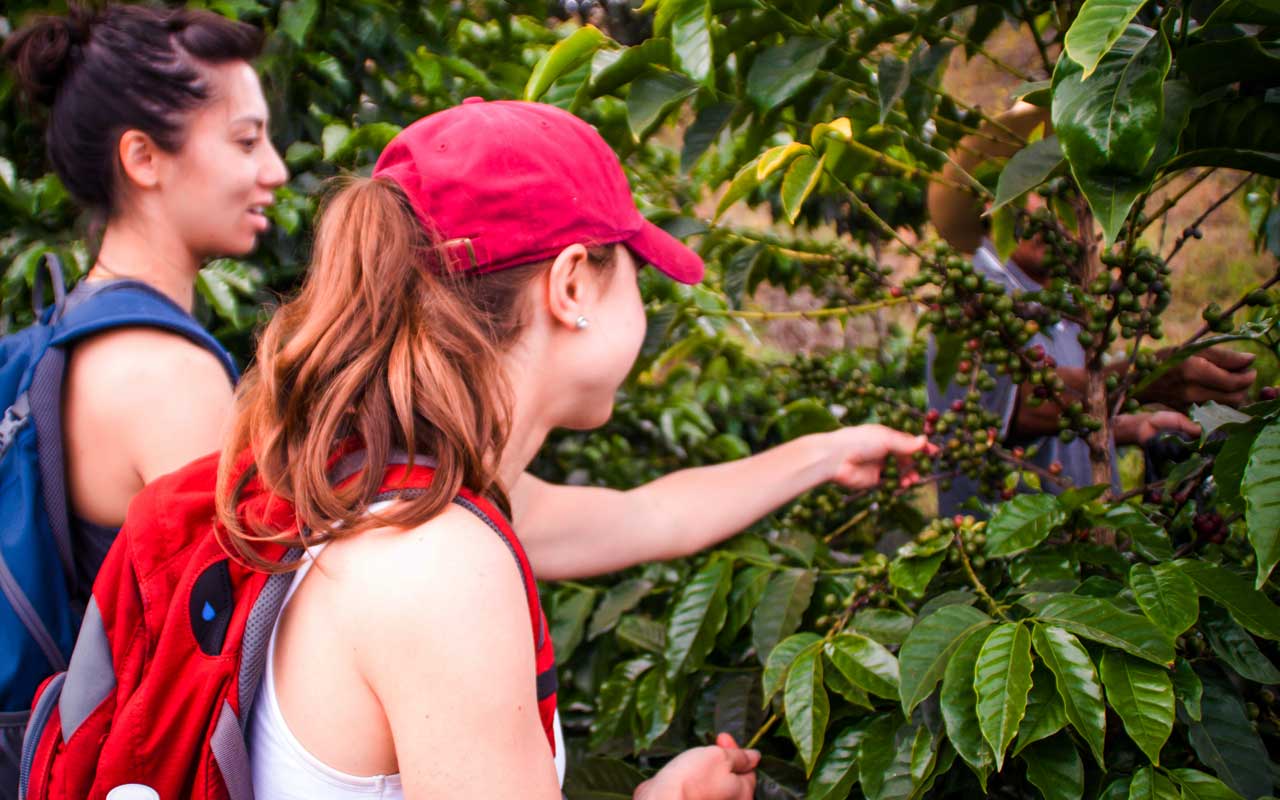 stry and you follow the trail from seed to shelf. We work with a bunch of different coffee cooperatives, different farmers who are involved in different ways of selling their coffee through different means. I got to see first hand all of the work that goes into creating just a single cup of coffee. You have to climb up the side of an active volcano for about 45 minutes before you actually get to the coffee farm. The process of picking all of the coffee beans, de-pulping and roasting takes such a long time. It’s something that I never knew before and I am an avid coffee drinker back home. So being able to see that and connection with the farmers who are actually doing this work for us all over the world was a powerful experience for me.
stry and you follow the trail from seed to shelf. We work with a bunch of different coffee cooperatives, different farmers who are involved in different ways of selling their coffee through different means. I got to see first hand all of the work that goes into creating just a single cup of coffee. You have to climb up the side of an active volcano for about 45 minutes before you actually get to the coffee farm. The process of picking all of the coffee beans, de-pulping and roasting takes such a long time. It’s something that I never knew before and I am an avid coffee drinker back home. So being able to see that and connection with the farmers who are actually doing this work for us all over the world was a powerful experience for me.
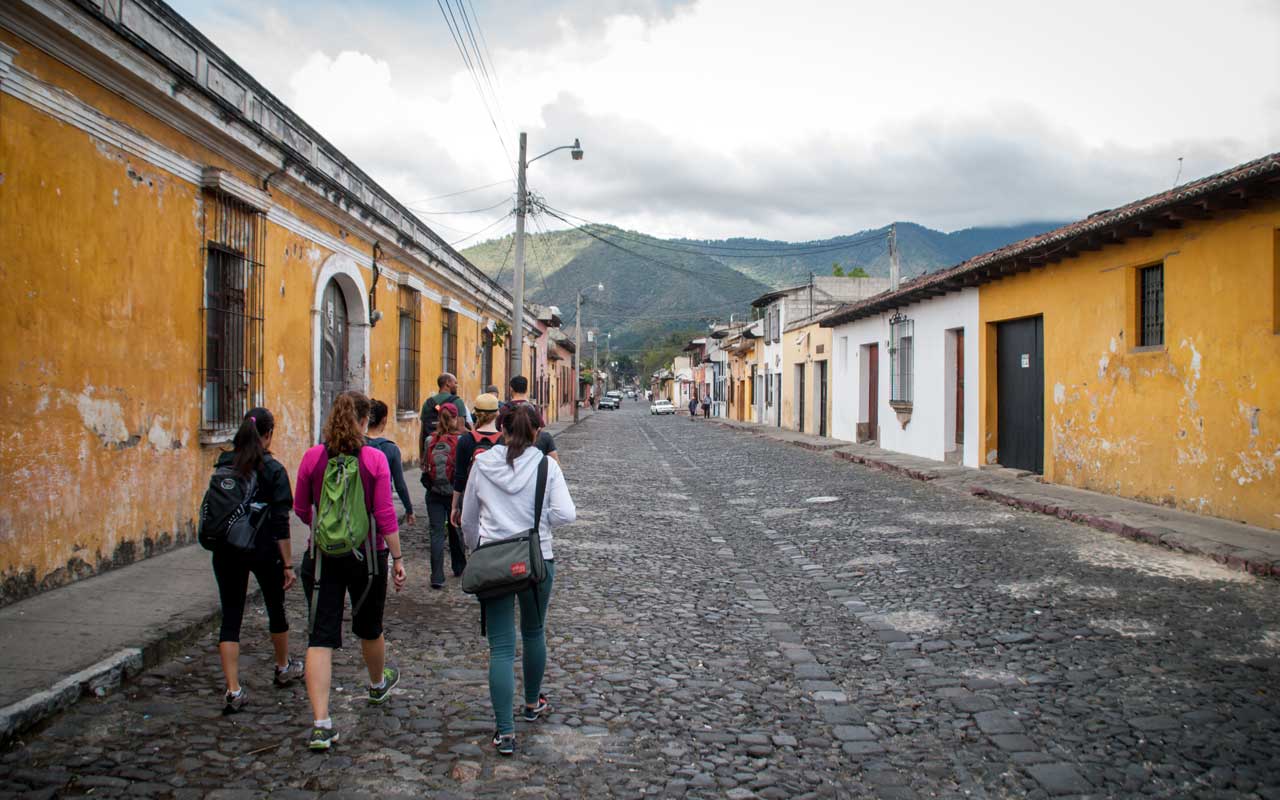
In the Photo: Backpacktivism takes root with Operation Groundswell in Guatemala. Photo Credit: Operation Groundswell
A big part of this particular program is taking a look at fair trade which is a popular trend in the Western world, and seeing the farmers helps you see how they actually feel about fair trade. We get to hear the voices of people that we would not otherwise have a chance to hear.
I’ll quickly talk about another one, it’s very different and really interesting. Our Middle East: Behind the Headlines program: we go to Israel and Palestine. It is a very different program. We hear a lot about the Israeli-Palestinian conflict here in the Western world. A lot of it is either sensationalized or biased towards one side or the other and the goal of this program is to go behind all of that and to see what’s really happening on the ground. We meet with a bunch of different actors on both sides and across the political spectrum. It’s powerful to be able to speak to these people and hear from their experiences.
A lot of our partners there are doing peace building work and bring together small groups of Palestinians and Israeli communities together to break bread and get to know one another, which doesn’t often happen. We never hear about those organizations in the Western media. All we hear about is about the conflict and the strike, which is obviously important but there’s so much amazing grassroots local work that is being done there that we don’t nearly know anything about. It’s an incredible experience for our participants to be able to see that first hand.
E.R.: My family is Israeli – I grew up hearing a lot about the conflict and I’ve always been interested in it. When I was 18 years old, I spent a year living in Israel and Palestine, expanding my view of the world to see what I could do with it. During that process I realized that the conflict is a lot more complex. It’s not just two sides, there’s like a million sides and they are all fighting and disagreeing with each other and even if you think you could make a group out of different camps, they don’t want to be grouped out.
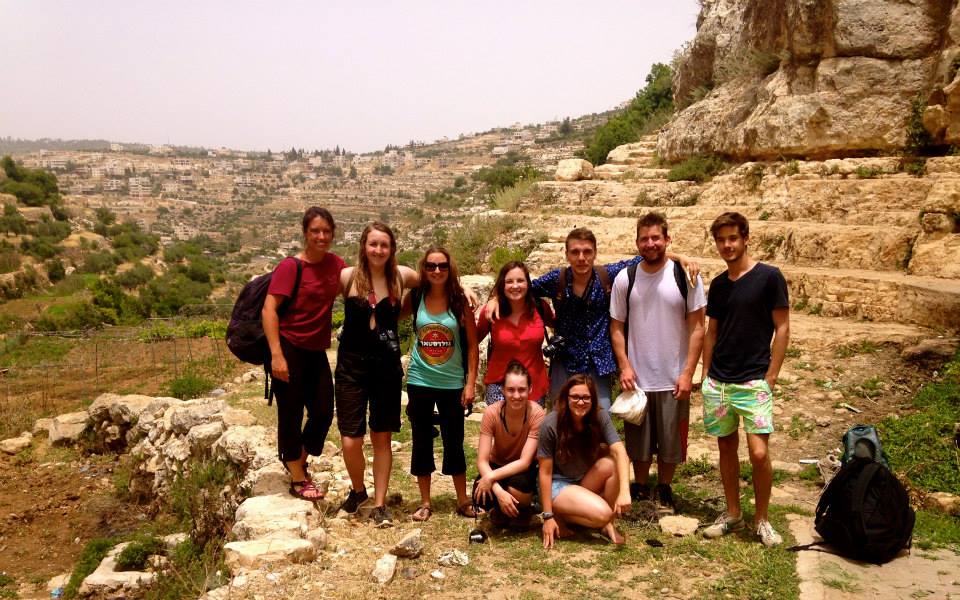
In the Photo: Operation Groundswell merges activism and travel in the Middle East with backpacktivism. Photo Credit: Operation Groundswell
David and Jonah came to me after I had been leading programs with other organizations and said “we’d like you to plan a program for the Middle East, looking at the conflict and we want you to include as many perspectives as possible, except for your own”. And that idea jumped out at me: my goal and job as a leader is not to manufacture an experience or a perspective on anything, my goal is to facilitate the educational experience of participants to expose them to as many different perspectives as possible and then to help guide them through the process of reflecting and processing on their own feelings and figuring out what they believe and then trying to figure out how they’re going to use what they believe to create an impact on the world.
We are here to teach people how to be critical and challenge their own assumptions and biases on multiple cultures.
What power and privilege look like, and beyond all that how you bring it home.
Photo Credit: Operation Groundswell
How do you evaluate the impact you make on your participants?
E.R.: There’s no perfect system for this but our goal is to have our participants come back more politically, socially and civically engaged and generally more aware of the challenges that the community and our society are facing. We make the participants fill out a survey pre-trip, post-trip and a year after. This survey helps us assess their level of engagement before and after the program: are they voting, volunteering, leading community action, donating… We are implementing a three-year survey which I’m really excited about because we want to see if these are lasting effects. Obviously, these can be biased as they are self-selecting but it helps us get at least directional information if not completely accurate.
I think that the thing that surprised me the most was the impact of the length of the program on the level of impact in the participant.
We thought that with a longer program, it would be more impactful, they’d come home more ready to take charge to be those activists in their community.
What we actually found is the opposite. It was giving people who were going on the short programs, one to two week-long programs, enough to get them fired up – and they are more engaged in their communities.
Will you end up doing programs in other parts of the world, even say, in North America?
E.R.: We have a dream. The idea is to run a program in an RV, with 10 people crossing the country looking at activism in the US. We want it to start in Detroit, see the amazing art and culture that is kind of rising up from the ashes in a lot of ways, going to Flint, Michigan, look at the water crisis which has also created the lightning round of activism in this community, with people all over the country coming to show support, going through North Dakota and talk about the pipeline, and then circling out through the coast. We have the whole thing planned out but we are just very cognizant of price… it’s just much more expensive so we are trying to figure that part out.
What does sustainability mean to you?
E.R.: On a personal level. What we are really talking about is creating systems and a society that allows for future societies to thrive beyond just survival – that for me is not only environmental but social, economic and also political and so all those pieces play a part within this larger question of how to live in this world so that other generations beyond ours can too thrive in it.
J.Y.: I guess there’s two ways of looking at it. There’s the one in terms of programs and partners that we work with. We want to make sure that the projects we are working on are projects that our partners need from us. Also, we don’t want to take work from locals.
Another side is as an organization. We thrive to be self-sufficient and sustainable so we operate a little bit differently from other non-profits. We are sustainable in that we do have a program fee and that covers expenses on the ground but also our own expenses in terms of administration, salaries… which we find to be a more sustainable model for social ventures.
E.R.: On an organizational level. We are really intense on being able to be autonomous as an organization, to not have to rely on grants or charity of others for us to be able to fulfill our mission. We have tried to make ourselves self-sustainable by structuring our business model in a way where we can continue to run and 5 years down the road, if I can’t do this job, Operation Groundswell has the funds and capacity to bring in somebody else to continue to take this to the next level.
J.Y.: There is a common misconception that as an NGO you can’t have a program fee.
We’ve received a lot of pushback on that because we are a non profit and they’re like “oh but why do you charge?”
What did OG change for you?
J.Y.: It’s changed so many things, first and foremost, my perception of what a workplace can look like. We have grown up with more traditional forms of workplaces where things are very rigid – where there’s a rigid difference between your personal life and your professional life, but Operation Groundswell has shown me how a lot of that can change and a lot of that intermingles. Even though you are in different “departments”, everyone has a say. There’s a real collaborative process and well, I’ve never been in a workplace like that before and that’s changed a lot for me. The work we do abroad has also changed me, because I’ve learned so much about these different and the different social justice issues – now I have such an intimate perspective on them, by working on them on a day-to-day basis. It’s changed my perception of the world in terms of what work can be done.
 Having the opportunity to discuss with Justine and Eyal, has given me the urge to travel the world, looking for these authentic, life-changing experiences. I am sure that the travel bug must have bit most of our readers now… and probably the urge to get a taste of backpacktivism too.
Having the opportunity to discuss with Justine and Eyal, has given me the urge to travel the world, looking for these authentic, life-changing experiences. I am sure that the travel bug must have bit most of our readers now… and probably the urge to get a taste of backpacktivism too.
What better way to kick-off this year than to plan a backpacking adventure with them? A few programs just opened for Spring and Summer 2017 – check them out here to apply.
Recommended reading: “WHAT WE SEE WHEN WE LOOK AT TRAVEL PHOTOGRAPHY”


